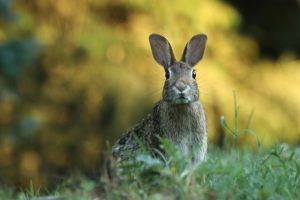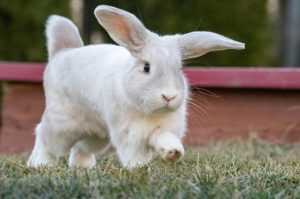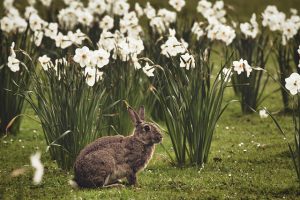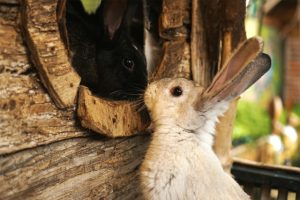Rabbits are mammals that live outdoors, at least the majority of rabbits. There are foods that are common to feed rabbits, the ones you know that they love. Then, of course, there are those foods that should not be given to your furry little bunny rabbit.
There are some common and everyday foods that you may not give a second thought about, however, if you were to feed them to a rabbit, you could be responsible for killing the rabbit. Rabbit breeds do vary. The smallest rabbit weighs in at 2.5 pounds, while one of the largest could tip the scales at 49 pounds or more. Even at this size, those everyday foods can be fatal to the rabbit.
Contents
Most common everyday food to avoid
- Many of us eat Avocados, Iceberg lettuce, and cereal. Most of us would think that it would be okay for a rabbit to nibble on some lettuce. Well, we would be wrong! Iceberg lettuce is a deadly food when it comes to rabbits. There are recommended healthy diets and lists of foods that are safe for rabbits to eat. These would include plant-type foods, but not all of them.
Broccoli and brussel sprouts are good choices, along with clover and grasses. Being opportune feeders, Rabbits will happily fill their bellies with seeds, roots, fruit, tree bark, and new buds starting to sprout. Although this may sound like many options for a rabbit's diet, that list lacks nutrients that they need. Sadly, what they tend to do is to eat their own excrement to fill the nutritional needs lacking in their diet.
The favorite time for rabbits to be out searching for food would be dawn and dusk. However, the predators are out in full force then also. Many of us like to feed the wildlife around our yards, fields, and other areas. We need to be vigilant about the foods we leave out that are accessible to these furry and fun little creatures.
15 foods that you should NEVER feed a rabbit
- Avocado: Although avocado is a fruit, it is one that should not be in a rabbit’s diet. Avocados can be deadly to a rabbit.
- Cauliflower: If a rabbit can eat broccoli, you would think that cauliflower is good for the diet. Not so, states PETA. Cauliflower causes a rabbit to bloat and develops gas.
- Yogurt Drops: Sure it is tempting when you are sitting out by the cage talking to your bunny, you want to share your snacks with him. Please, if you are eating yogurt drops, keep them for yourself. Yogurt can cause an excessive amount of bad bacteria in the intestinal tract. Yogurt is toxic to rabbits.
- Meats: Rabbits are herbivores, their diets consist of plants and plant-based foods. Even in the wild, a rabbit will not consume meat in their diet.
- Carbohydrates: Foods such as bread, cookies, crackers, or pasta can lead to stomach issues or like, yogurt toxicity in the intestinal tract which will ultimately be their demise.
- Rhubarb: Although this is a very common plant found all over, rabbits will not and should not be fed rhubarb.
- Cereal: You may know that cereals such as Muesli are supposed to be healthy for us humans to eat, however, those processed bits of cereal lead to tummy and teeth problems.
- Potatoes: As a vegetable, we would assume that potatoes are good for rabbits. However, they are filled with carbohydrates and starch. Both of these are prone to cause stomach problems for the rabbit.
- Iceberg Lettuce: Any light-colored lettuce is not good for the digestive tract of a rabbit. Light-colored lettuce contains lactucarium, a chemical that is dangerous for all rabbits.
- Peanut Butter: Although this is a creamy and tasty condiment for humans, it is too high in fat content and could give them a severe tummy ache.
- Chard: Just like iceberg lettuce, this leafy vegetable will cause gas and bloating in a bunny. They can also develop colic from eating Chard or Silverbeet.
- Chocolate: The standard is the same for rabbits as it is for canines. Chocolate can be poisonous for the rabbit population.
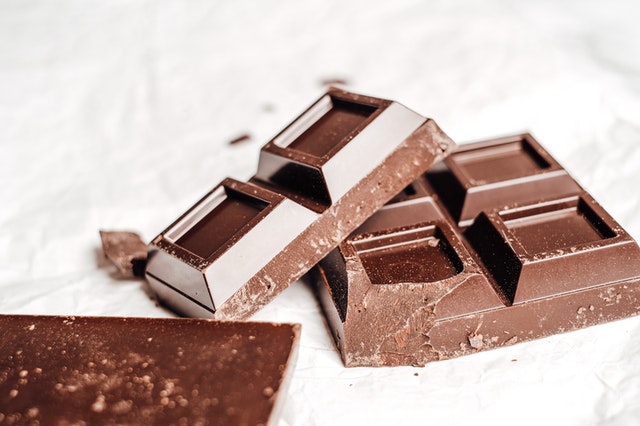
- Hamster or Gerbil Food: Even if it is good for the hamster, it does not mean that it is good for the rabbits. There is nothing of any nutritional value to a rabbit in a dish full of gerbil food.
- Oatmeal: Now granted, this will not cause damage per say to the rabbit, but it is definitely not a proper food for the bunny in your life.
- Walnuts: These are such tasty nuts, we would naturally assume that they could be nibbled and eaten by the furry creatures. Again, there is nothing of nutritional value for a rabbit, in a walnut. A walnut contains high levels of fat which will cause stomach distress in your pet.
We also have a list of fruits and vegetables that need to be avoided at all costs, other than those that are listed above.
- Sweet Potatoes, Garlic, Leeks, Onions ,Turnips, Mushrooms, Peas, Parsnip Apricots, Plums, Peaches, Custard Apples, Figs, Bananas, and Broad Beans.
These foods will cause a variety of issues to your baby bunny and full-grown adult rabbit. For the most part, these cause bloating and gas in the intestinal tracts. When they have a build-up of gas, they have no way of releasing that gas. A rabbit is incapable of flatulence. The gas then makes its way into the bloodstream and causes poisoning that is almost always fatal.
How to avoid
We can be thankful for the most part that the rabbits are smart enough to know what is safe to eat out in the wilderness. I am sure that there are many who do take a bite or two from foods that they should not, but for the majority, they will avoid those poisonous plants and foods.
If you place food into a tame rabbit’s cage, they will believe that it must be okay for them to eat. They trust the caretaker and rely on you to feed them with the proper foods and nutrition.
For those who love having rabbits in their yards, there are also many plants that rabbits cannot nibble on. If you plan on wildlife in your yard, such as rabbits, please consider eliminating the following plants from your flower gardens. The rabbits end up with built-up gasses in their intestinal tracts and are unable to remove them with flatulence.
- Ivy, Jimson, Belladonna, Lupine, Oleander, Bluebells, Milkweed, Honeysuckle, Iris, Snowdrop, Tulip, White Horehound, Ferns, Laurel, Poppy, Sea Rush, Daffodils, Centella, Spearmint, and Burdock
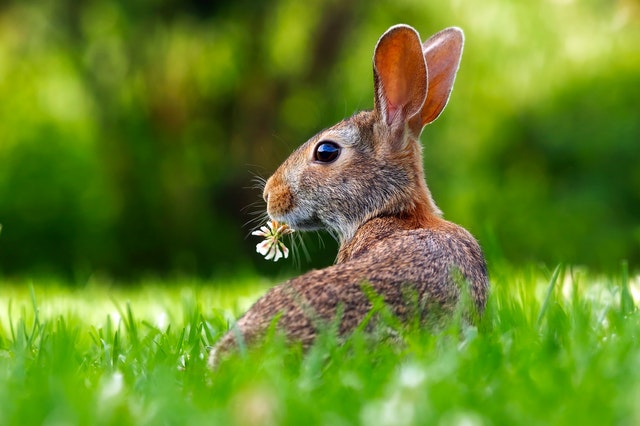
Signs to watch
There are signs to watch for if you believe that the rabbit has been poisoned, or if it has eaten one of the items listed, that could be fatal to their kind. Some of these signs would be obvious signs of pain, have not eaten in twelve hours, there is no sign of urination or defecation in the cage, diarrhea, vomiting, or having spasms or convulsions. Also, be on the watch for excessive tooth growth and lack of energy.
If you notice any of these signs and your rabbit is a pet, take the animal to the vet immediately. If it is a rabbit in the wild, if you can catch the rabbit, transport it to the vet, if not, leave the area and hope that nature helps the rabbit.
Safe food for rabbits
Now for the list of the safest foods for rabbits. Obviously, a good type of hay is the best. Also, keep in mind that the digestive tract is sensitive in small animals such as rabbits. Just like for humans, Moderation is the key to a proper diet. Meaning, there are recommendations by vets worldwide to only feed your pet small portions of even safe foods.
Leafy Greens, other vegetables, and fruits:
- Endive, Bell Peppers, Kale, Cabbage, Turnip Greens, Carrots, Romaine Lettuce, Wheatgrass, Apples, Mangoes, Peaches, Kiwi, Apricots, Cherries, Alfalfa Sprouts, Spinach, Zucchini Squash, Spring Greens, Radish Tops, Watercress, Bok Choy, Pears, Nectarine, Berries, Melons, Bananas, and Papaya.
There are premade options available at feed stores or Pet Stores. These include Timothy hay, dehydrated cranberries, and dehydrated apples. You can also find some premade snacks at the same locations where you purchase your pets’ food.
Contrary to what we see on television, carrots are not the main item in a rabbit’s diet. The bulk of the edible diet is Timothy hay, brome, or another high-quality grass or hay. Carrots can be given in small amounts, but they are higher in carbohydrates and will cause gas and pain in your rabbit. Rabbits are actually part of our family, you want him or her to eat healthily and be happy. It is very important to avoid these food dangers when feeding your pet. Most of the foods react differently inside the intestinal tracts of rabbits compared to humans.
For newborn or baby rabbits, alfalfa and alfalfa pellets should be given. These contain calcium which is needed while the rabbit is growing. Hay should be available all day long. Rabbits are known nibblers and will be constantly eating or snacking when it is available. For this reason, stick to the options listed when considering what to give your rabbit. Water is another item that should be available all day and all night. Rabbits need to drink plenty of water to not only stay hydrated but to also keep the digestive juices moving through their systems.
To note...
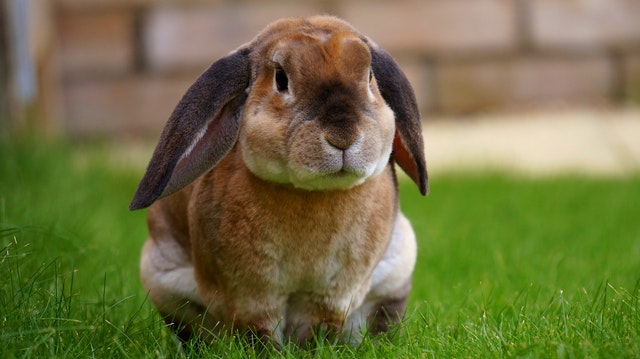
One more thing to keep in mind, rabbits like to chew. They chew a lot, especially when the teeth are growing. You can buy chew toys for rabbits, they also like to chew on sticks and other wood. Keep these items available in the cages at all times.
Do not attempt to break what humans consider as a disgusting action. Usually, owners will never see this happening, as it happens very early in the morning or extremely late at night. Rabbits eat their own excrement. As odd as it sounds, this is healthy for your rabbit. The excrement contains nutrients and vitamins B and K, which are extremely important. This excrement is different from what is seen by the owners. The pellets are darker, softer, and have a sweet, fermented smell to them.
The ASPCA highly recommends following your veterinarian's advice when it comes to a rabbit’s diet. Rabbits are gentle creatures, soft and fluffy who need just as much love and attention as humans do. The rabbit becomes a big part of the family when you are raising rabbits, (at least they should be). They need nutrition, comfort, chew toys, snacks in moderation, and a proper diet at all times. This also means to sparingly give fruits and vegetables that contain natural sugars and carbohydrates. These, in excess, will cause the rabbit’s stomach discomfort and possibly worse health issues. Rabbits are loving and playful creatures that make most people smile, no matter how bad the day is. Your bunny rabbit will grow up to be happy and healthy when it is given the proper diet, attention, love, and comfort.
A few tips to consider when you are a bunny owner
Have a vet that knows a lot about rabbits. If possible, get the bunny fixed. Rabbits can be trained to use a litter box. Most importantly, please remember that a bunny rabbits can bond with their human companion and show love to them. They enjoy feeling the love come back to them. Your bunny will recognize your voice and follow the sound to find you. Rabbits have lived with their owners inside the home for hundreds of years. They will tend to follow you from one room to the next, just to be close to you.


